
ABOUT THE AUTHOR
Professor Nur Masalha is a Palestinian historian and a member of the Centre for Palestine Studies, SOAS, University of London. He is also editor of the Journal of Holy Land and Palestine Studies . His books include Expulsion of the Palestinians (1992); A Land Without a People (1997); The Politics of Denial (2003); The Bible and Zionism (Zed 2007) and The Palestine Nakba (Zed 2012).
PALESTINE
A FOUR
THOUSAND
YEAR
HISTORY
NUR MASALHA

Palestine: A Four Thousand Year Histor y was first published in 2018 by Zed Books Ltd, The Foundry, 17 Oval Way, London SE11 5RR, UK
www.zedbooks.net
Copyright Nur Masalha 2018.
The right of Nur Masalha to be identified as the author of this work have been asserted by him in accordance with the Copyright, Designs and Patents Act, 1988
Typeset in Adobe Garamond Pro by seagulls.net
Index: Nur Masalha
Cover design: De Agostini Picture Library/Getty
All rights reserved. No part of this publication may be reproduced, stored in a retrieval system or transmitted in any form or by any means, electronic, mechanical, photocopying or otherwise, without the prior permission of Zed Books Ltd.
A catalogue record for this book is available from the British Library
ISBN 978-1-78699-272-7 hb
ISBN 978-1-78699-274-1 pdf
ISBN 978-1-78699-275-8 epub
ISBN 978-1-78699-276-5 mobi
CONTENTS
Any credit for this book should be shared with a large number people who provided me with documents, archival and material sources, logistics, ideas, comments and moral support. These include Thomas Thompson, Rosemary Sayigh, Hamdan Taha, Hussein Hamzah, Emanuel Beka, Ghalib Anabsi, Maysa Hamzah, Raja Khalidi, Marie Antoinete, Salim Tamari, Sherna Berger Gluck, John Docker, John Rose, Saad Chedid, Gilbert Achcar, Yosefa Loshitzky, Bernard Regan, Ismael Abu Saad, Nahla Abdo, Asia Zrike, Hassan Hakimian, Ehab Masalha, Peter Mayo, Laura J. Khoury, Hatem Bazian, Faiha Abdulhadi, Niels Peter Lemche, Ella Shohat, Nadera Shalhoub-Kevorkian, Maryse Gargour, Ilan Pappe, Issa Jubrael Sarie, Khalil Nakhleh, Adrian Beidas, Oren Ben-Dor, Rashid Khalidi, Ghada Karmi, Khalil Hindi, Iman Saca, and Ahmad Saadi. My special thanks go to Professors Thomas Thompson and Haim Bresheeth for their extraordinary generosity and insightful comments and to the two anonymous reviewers for their time and helpful advice. My family and friends have also been an ongoing source of inspiration and encouragement and this book could not have been completed without the support my wife Stephanie and my daughter Maryam; to both I owe enormous gratitude. At Zed, I am particularly grateful for the comments and practical help of the Commissioning Editor Kim Walker, Production Director Amy Jordan and Project Manager Linda Auld. Needless to say that, while all the above have contributed directly and indirectly to this work, thus enabling the book to come to fruition, any mistakes or shortcomings in this book are entirely mine.
PALESTINE AS A NAME COMMONLY USED THROUGHOUT ANCIENT HISTORY
First documented in the late Bronze Age, about 3200 years ago, the name Palestine (Greek: ; Arabic:  , Filastin), is the conventional name used between 450 BC and 1948 AD to describe a geographic region between the Mediterranean Sea and the Jordan River and various adjoining lands. This work explores the evolution of the concept, histories, identity, languages and cultures of Palestine from the Late Bronze Age to the modern era. Moreover, Palestine history is often taught in the West as a history of a land, not as Palestinian history or a history of a people . This book challenges colonial approach to Palestine and the pernicious myth of a land without a people () and argues for reading the history of Palestine with the eyes of the indigenous people of Palestine. The Palestinians are the indigenous people of Palestine; their local roots are deeply embedded in the soil of Palestine and their autochthonous identity and historical heritage long preceded the emergence of a local Palestinian nascent national movement in the late Ottoman period and the advent of Zionist settler-colonialism before the First World War.
, Filastin), is the conventional name used between 450 BC and 1948 AD to describe a geographic region between the Mediterranean Sea and the Jordan River and various adjoining lands. This work explores the evolution of the concept, histories, identity, languages and cultures of Palestine from the Late Bronze Age to the modern era. Moreover, Palestine history is often taught in the West as a history of a land, not as Palestinian history or a history of a people . This book challenges colonial approach to Palestine and the pernicious myth of a land without a people () and argues for reading the history of Palestine with the eyes of the indigenous people of Palestine. The Palestinians are the indigenous people of Palestine; their local roots are deeply embedded in the soil of Palestine and their autochthonous identity and historical heritage long preceded the emergence of a local Palestinian nascent national movement in the late Ottoman period and the advent of Zionist settler-colonialism before the First World War.
Friedrich Nietzsche argued that history is always written from and with a particular perspective and the past looks different from different perspectives, although some perspectives are empirically more truthful or less distorting than others. This work is not aimed at creating a grand narrative or a metanarrative for Palestine, as a way of mirroring or mimicking the foundational myths of Zionism. However, considering alternative and critical perspectives and looking for proof and empirical evidence are also central to critical historical writing. Using a wide range of contemporary evidence, testimony and sources, this book applies a multiple-perspective approach to the history of Palestine across time, while always keeping in mind the realities of the country and its indigenous people. It further argues that multi-linear evolution of the conceptual experience of Palestine, with its unanticipated twists and turns over time and space, centre on the general and concrete ideas which represent the historical and fundamental characteristics and lived experiences of Palestine and its indigenous people. The geo-political unit and contextualised representations (and indigenous framing) of Palestine are deeply rooted in the collective consciousness and empirical experiences of the indigenous people of Palestine and the multicultural and shared ancient past.
The name Palestine is the most commonly used from the Late Bronze Age (from 1300 BC) onwards. The name is evident in countless histories, Abbasid inscriptions from the province of Jund Filastin (of books built up across several centuries are myth-narratives designed to underpin false consciousness, not evidence-based history which promotes truth and understanding. It further argues that academic and school history curricula should be based on contextualised historical facts, empirical evidence, archaeological and scientific discoveries, not on conventional opinions or the fictional narratives of the Old Testament and religio-political dogmas repeatedly reproduced in the interest of powerful elites.
The celebrated English historian and Enlightenment author Edward Gibbon, writing in 1776, noted that Phoenicia and Palestine will forever live in the [collective] memory of mankind. Gibbon also astutely observed that the Romans, Persians and Arabs wanted Palestine for the extra-ordinary fertility of its soil, the opulence and beauty of its cities and purity of its air (, Vol. 1: 40; 1840, Vol. 5: 173).
Today the idea of a country is often conflated with the modern concept of nation-state, but this was not always the case and countries existed long before nationalism or the creation of metanarratives for the nation-state. The conception of Palestine as a geo-political unit and a country (Arabic: bilad or qutr ), with evolving boundaries, has developed historically and continues to do so. The identity and cultures of Palestine are living organisms: they change, evolve and develop. This work explores the representation of Palestine over time as a mixture of the perceived and conceived and the lived realities of the country. The evolving idea of Palestine is framed here within five basic assumptions which also centre on the principles of human agency, context and lived experiences:
Palestine is the individual and collective bilad (country) in modern terms: watan, or mawtin (homeland) of the Palestinian people: the indigenous people of historic Palestine ( Filastin al-Tarikhiyyah ) and the indigenised immigrants in Palestine. The Palestinian people (individually and collectively) have a multifaith and multicultural heritage and a multi-layered identity deeply rooted in the ancient past ().
Next page
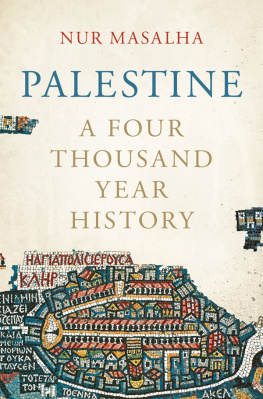


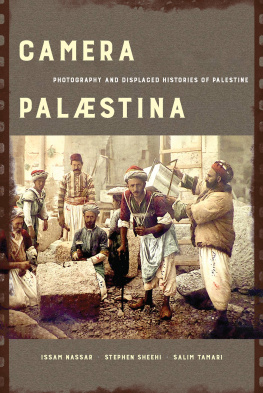
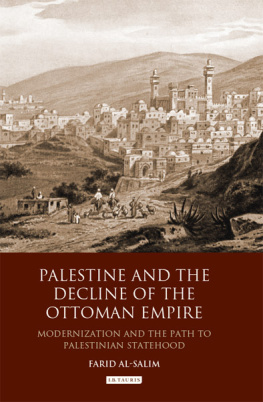
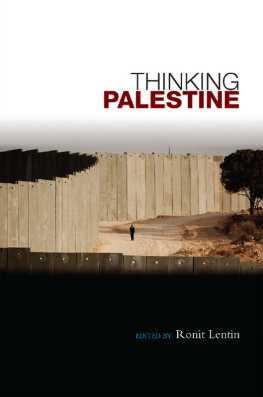
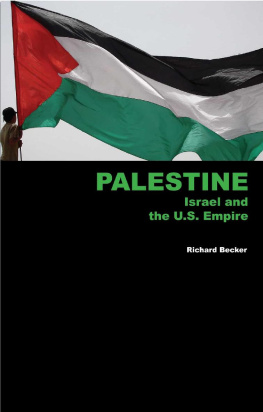
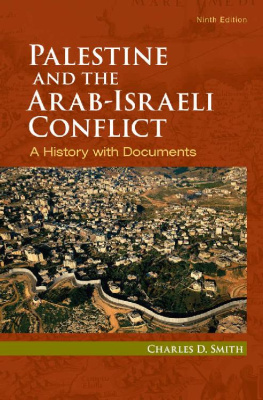
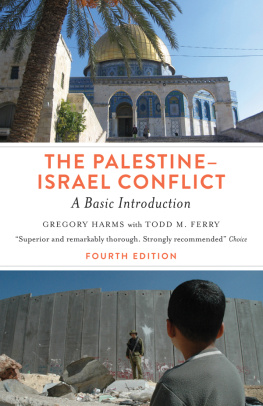

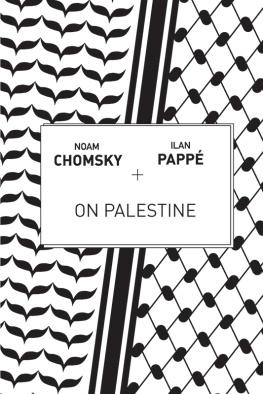
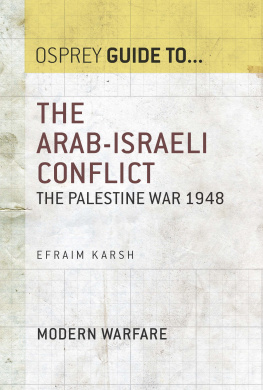


 , Filastin), is the conventional name used between 450 BC and 1948 AD to describe a geographic region between the Mediterranean Sea and the Jordan River and various adjoining lands. This work explores the evolution of the concept, histories, identity, languages and cultures of Palestine from the Late Bronze Age to the modern era. Moreover, Palestine history is often taught in the West as a history of a land, not as Palestinian history or a history of a people . This book challenges colonial approach to Palestine and the pernicious myth of a land without a people () and argues for reading the history of Palestine with the eyes of the indigenous people of Palestine. The Palestinians are the indigenous people of Palestine; their local roots are deeply embedded in the soil of Palestine and their autochthonous identity and historical heritage long preceded the emergence of a local Palestinian nascent national movement in the late Ottoman period and the advent of Zionist settler-colonialism before the First World War.
, Filastin), is the conventional name used between 450 BC and 1948 AD to describe a geographic region between the Mediterranean Sea and the Jordan River and various adjoining lands. This work explores the evolution of the concept, histories, identity, languages and cultures of Palestine from the Late Bronze Age to the modern era. Moreover, Palestine history is often taught in the West as a history of a land, not as Palestinian history or a history of a people . This book challenges colonial approach to Palestine and the pernicious myth of a land without a people () and argues for reading the history of Palestine with the eyes of the indigenous people of Palestine. The Palestinians are the indigenous people of Palestine; their local roots are deeply embedded in the soil of Palestine and their autochthonous identity and historical heritage long preceded the emergence of a local Palestinian nascent national movement in the late Ottoman period and the advent of Zionist settler-colonialism before the First World War.